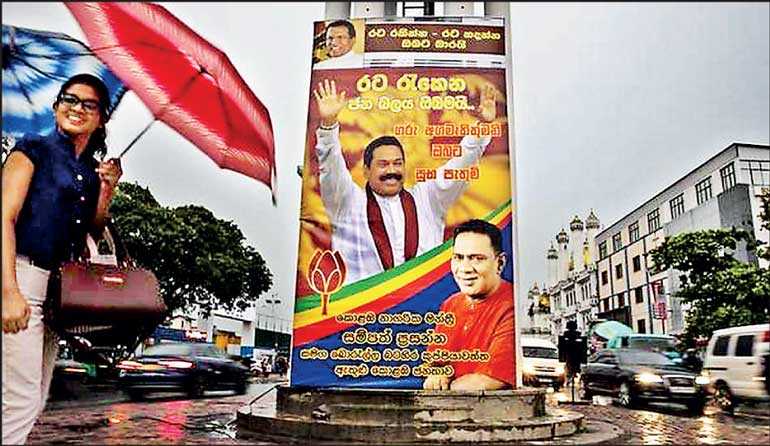Wednesday Feb 18, 2026
Wednesday Feb 18, 2026
Monday, 3 December 2018 01:17 - - {{hitsCtrl.values.hits}}

By Meera Srinivasan
Hindu: Sri Lanka’s Parliament passed two motions on Thursday and Friday, blocking cash flow to the offices of the Prime Minister, Cabinet and all other Ministries of the purported Government led by Mahinda Rajapaksa.Speaking on the implications, a senior legislator said: “If they have been passed with a majority in Parliament, the Secretaries must take note.”
However, it is not as straightforward for the country’s bureaucracy – especially when the disputed Government and Cabinet are busy taking weekly decisions, despite failing to prove majority in even one of the six votes held in the legislature last month. ‘Ministers’ are signing orders, expecting their Secretaries to implement them.
“We have never been on a trickier slope – not even during the war years,” a senior bureaucrat attached to a Ministry for an essential service told The Hindu. “As bureaucrats, we work with the Government of the day. But when that is a disputed matter, our job gets very hard,” he said, requesting anonymity. Sri Lanka’s civil servants are selected through the Sri Lanka Administrative Service exam, to serve central and provincial authorities.
The recent developments prompted highly respected, retired civil servant Devanesan Nesiah to return the title of ‘Deshamanya’, among the highest national honours conferred by the Government. “Since I can no longer take pride in the title of Deshamanya that you’ve conferred on me, I have no option but to return my treasured medal and certificate,” he said in an open letter to the President.
Weeks after the President sacked incumbent Prime Minister Ranil Wickremesinghe on 26 October and installed former President Mahinda Rajapaksa in the office, Sirisena convened a meeting with all secretaries to the Ministries and District Secretaries. “The political situation in the country will be resolved very soon,” he assured them on 17 November. Further, he urged the bureaucrats and all public servants to prioritise the needs of the people by working in a “non-partisan” manner.
Except that being non-partisan is not simple. Every order they take from Rajapaksa, or any of his colleagues in the Cabinet, means just the opposite. The bureaucrats are, in fact, forced to take a side, despite Parliament voting out Rajapaksa in two trust votes and regardless of the two court cases challenging Sirisena’s actions and Rajapaksa’s appointment.
Clear instructions
Earlier on 8 November, President Sirisena chaired another meeting with politicians and bureaucrats associated with the Presidential Task Force on Northern and Eastern Province Development that he set up in August.“It was a very cordial and useful meeting to review progress and discuss next steps,” Task Force Secretary V. Sivagnanasothy said. The President gave ‘clear instructions’ on releasing military-held land and reviving defunct industries in the north and east.
“The MPs from the Tamil National Alliance also took part and gave their inputs,” he told The Hindu. Though some of the newly-appointed ‘Ministers’, too, participated in the discussion, it was the President who directed the officials, making it relatively easier for the bureaucrats to move files.
But their colleagues dealing with other ‘ministerial decisions’ are in an unenviable spot, reporting to the disputed Ministers. A senior bureaucrat spoke of the need to negotiate the current phase “tactfully”. “We try and avoid big policy decisions and instead focus on day-to-day matters that pertain to people’s basic needs. After all, we are public servants first and foremost.”